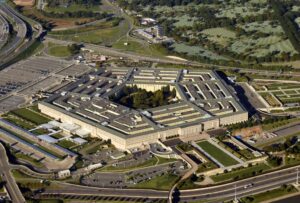The recent White House security breach has become a major national concern, raising questions about the government’s cybersecurity protocols and the handling of classified information. Elon Musk’s team has stepped in to assist with the investigation, working closely with federal authorities to determine the cause of the breach and prevent future incidents.
Understanding the White House Security Breach
The breach occurred when journalist Jeffrey Goldberg of The Atlantic was mistakenly added to a highly confidential White House Signal group chat discussing a planned U.S. military strike on Houthi rebels.
This mistake exposed internal government discussions and raised concerns about the security of sensitive communications. The White House Press Secretary Karoline Leavitt confirmed that Musk’s team of technical experts is working alongside the government to investigate how the mistake happened and what measures can be taken to improve security.
Key Facts About the Breach:
| Incident | Details |
|---|---|
| Date of Breach | March 2025 |
| Involved Personnel | Jeffrey Goldberg (Journalist), Pete Hegseth (Defense Secretary), Karoline Leavitt (White House Press Secretary), Elon Musk’s team |
| Leaked Information | Military operation discussion regarding the Houthi rebels |
| Government Response | Investigation launched; Musk’s team providing cybersecurity assistance |
| Potential Impact | National security risks, cybersecurity policy review, potential legal action |
Elon Musk’s Expanding Role in National Security
Musk’s involvement in the government’s cybersecurity efforts is not new. His companies, such as SpaceX, have long collaborated with NASA and the Department of Defense on various defense-related projects.
Recently, Musk met with Defense Secretary Pete Hegseth at the Pentagon, where he demanded the prosecution of individuals leaking false information about his visit. This incident highlighted concerns over the influence of private companies in national security matters.
Additionally, Musk’s Department of Government Efficiency (DOGE) has come under scrutiny. Lawmakers have raised concerns about whether private entities should have access to sensitive government data, particularly in areas like Social Security and Medicare. Critics argue that granting private companies access to highly confidential data could present risks to public privacy and national security.
How This Breach Impacts Government Cybersecurity Policies
The incident has sparked discussions on how the U.S. government manages its cybersecurity infrastructure. Experts have proposed several key measures to strengthen security:
- Enhanced Access Control Measures – Restricting access to classified communication channels to authorized personnel only.
- AI-Driven Security Protocols – Using artificial intelligence to detect potential breaches before they occur.
- Mandatory Cybersecurity Training – Ensuring all White House officials handling sensitive communications receive specialized cybersecurity training.
- Independent Audits – Conducting regular external audits to identify vulnerabilities in government communication systems.
A map below illustrates the primary cybersecurity improvements recommended by experts:
[Cybersecurity Improvements]
|
------------------------------------
| | |
[Access Control] [AI Security] [Training & Audits]
| | |
- Limited Access - Automated Threat - Regular Updates
- Multi-Factor Detection - Strict Oversight
Authentication - Real-Time Alerts - External AuditsWhy This Breach Matters to the Public
This incident is a wake-up call for national security. The accidental inclusion of a journalist in a sensitive government chat suggests that even high-level government communications can be vulnerable to mistakes.
The breach has raised concerns about:
- Transparency in government operations – How are cybersecurity measures enforced?
- Accountability – Who is responsible when breaches occur?
- Trust in government institutions – Can citizens trust that their leaders are securing sensitive information properly?
Public trust in cybersecurity is critical. If government agencies cannot protect classified communications, it raises broader concerns about the security of personal data, election integrity, and foreign interference.
Conclusion: The Need for Stronger Government Cybersecurity
The White House security breach highlights serious cybersecurity vulnerabilities that need urgent attention. With Musk’s team assisting in the investigation, there is growing momentum toward overhauling government cybersecurity practices. The following actions must be taken immediately:
- Implement stricter cybersecurity protocols for government officials.
- Adopt AI-driven threat detection to identify vulnerabilities early.
- Increase oversight and audits of government communication channels.
- Strengthen access control measures to prevent unauthorized access to sensitive information.
With cybersecurity at the forefront of national security, this event serves as a reminder of the importance of protecting sensitive government communications.
For more updates on this developing story, visit Business Insider.





